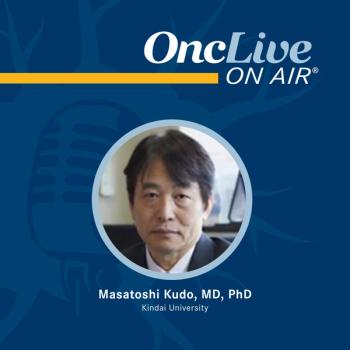
Masatoshi Kudo, MD, discusses the evolving treatment landscape in HCC and how recent comparative analyses are helping refine the use of first-line immunotherapy-based regimens.

Your AI-Trained Oncology Knowledge Connection!


Masatoshi Kudo, MD, discusses the evolving treatment landscape in HCC and how recent comparative analyses are helping refine the use of first-line immunotherapy-based regimens.
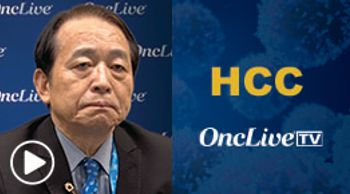
Masatoshi Kudo, MD, PhD, discusses a MAIC evaluating nivolumab/ipilimumab vs durvalumab/tremelimumab and atezolizumab/bevacizumab for unresectable HCC.
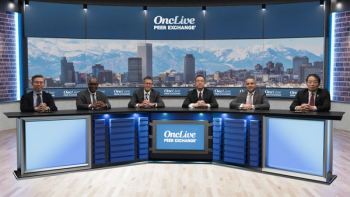
Panelists discuss how ongoing trials and investigational agents, including the Checkmate 9DW study, could significantly influence future treatment approaches for unresectable hepatocellular carcinoma .

Panelists discuss key updates from the 2024 American Society of Clinical Oncology Annual Meeting and the European Society for Medical Oncology Congress 2024 regarding treatments for unresectable hepatocellular carcinoma (uHCC), including insights from the CheckMmate 9DW study on the use of nivolumab and ipilimumab, and their implications for sequencing and combination therapies in various lines of treatment.

Panelists discuss the insights from real-world data on the effectiveness of cabozantinib, regorafenib, and ramucirumab in second-line treatment for unresectable hepatocellular carcinoma, highlighting the differences between strict eligibility criteria and more flexible modified criteria in patient selection.

Panelists discuss the data from the RESORCE trial, highlighting the efficacy of regorafenib in previously treated hepatocellular carcinoma, including primary trial results and insights on time to progression based on prior sorafenib treatment.

Panelists discuss the findings from the STELLAR trial, a phase 4 observational study presented at the European Society for Medical Oncology Congress 2024, which compares the efficacy of lenvatinib and sorafenib as first-line treatments for patients with advanced or unresectable hepatocellular carcinoma.

Panelists discuss the CELESTIAL trial findings and their implications for second-line treatment strategies in Japan for patients with previously treated hepatocellular carcinoma.

Panelists discuss the subgroup analyses from the CELESTIAL trial, focusing on treatment outcomes for specific patient populations with previously treated hepatocellular carcinoma.

Panelists discuss how to determine appropriate second-line and subsequent therapies for unresectable hepatocellular carcinoma after frontline treatment, emphasizing patient-specific factors and alternatives to clinical trial enrollment.

Panelists discuss findings from the IMmbrave050 trial comparing atezolizumab plus bevacizumab to active surveillance in patients with high-risk hepatocellular carcinoma patients, highlighting the significance of follow-up for those at risk of recurrence post- curative treatment.

Panelists discuss the findings from the EMERALD-1 trial on durvalumab with or without bevacizumab combined with transarterial chemoembolization TACE for first-line treatment of unresectable hepatocellular carcinomaHCC, examining its implications on progression-free survival, safety, and outcomes based on baseline tumor burden.

Panelists discuss the findings from the LEAP-012 study, which explores the efficacy of transarterial chemoembolization combined with lenvatinib and pembrolizumab in patients with Child-Pugh class A disease and intermediate-stage hepatocellular carcinoma.

Panelists discuss the results of the LEAP-012 study, highlighting the efficacy of transarterial chemoembolization combined with lenvatinib and pembrolizumab in patients with intermediate-stage hepatocellular carcinoma and Child-Pugh class A disease.

Panelists discuss the findings from the EMERALD-1 trial on durvalumab with or without bevacizumab combined with transarterial chemoembolization TACE for first-line treatment of unresectable hepatocellular carcinomaHCC, examining its implications on progression-free survival, safety, and outcomes based on baseline tumor burden.

Panelists discuss the circumstances under which monotherapy with a tyrosine kinase inhibitor or immunotherapy would be preferred in the treatment of unresectable hepatocellular carcinoma.

Panelists discuss current treatment options for unresectable hepatocellular carcinoma, including atezolizumab plus bevacizumab, durvalumab plus tremelimumab, and transarterial chemoembolization, along with the factors influencing treatment decisions.

Panelists discuss current treatment options for unresectable hepatocellular carcinoma, including atezolizumab plus bevacizumab, durvalumab plus tremelimumab, and transarterial chemoembolization, along with the factors influencing treatment decisions.

Panelists discuss the current landscape of first-line treatment for unresectable hepatocellular carcinoma, highlighting key options and decision-making factors.
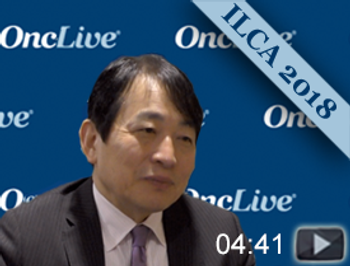
Masatoshi Kudo, MD, PhD, professor and chairman, Department of Gastroenterology and Hepatology, Kindai University, Osaka, Japan, discusses the results of a cost-effectiveness analysis of lenvatinib versus sorafenib in unresectable hepatocellular carcinoma in Japan.
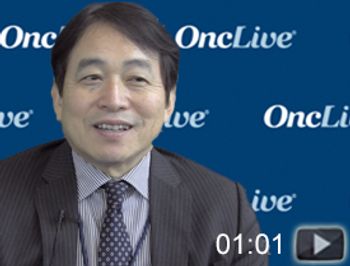
Masatoshi Kudo, MD, PhD, Department of Gastroenterology and Hepatology, Kindai University, discusses the randomized phase II trial comparing transarterial chemoradiation (TACE) plus sorafenib (Nexavar) with TACE alone in patients with hepatocellular carcinoma (HCC).
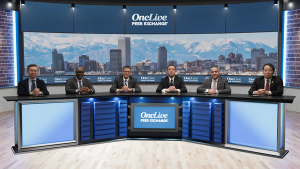
Published: October 7th 2024 | Updated:

Published: October 25th 2024 | Updated:
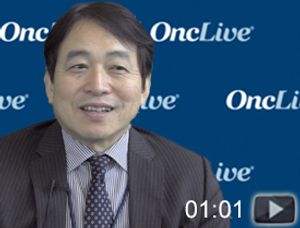
Published: February 15th 2018 | Updated:
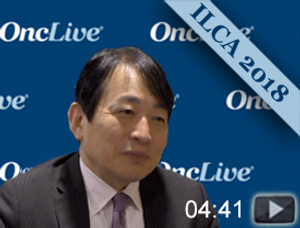
Published: September 16th 2018 | Updated:

Published: October 25th 2024 | Updated: